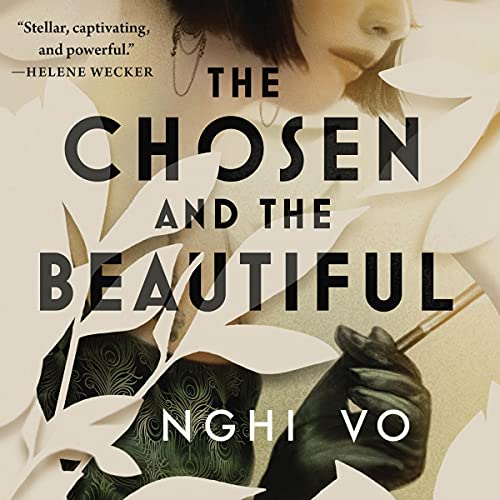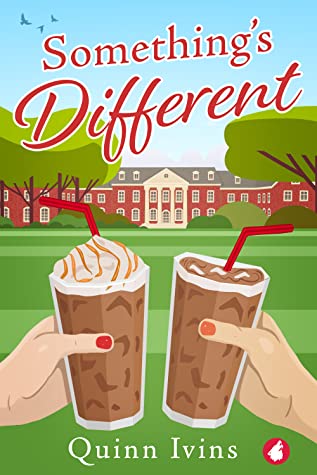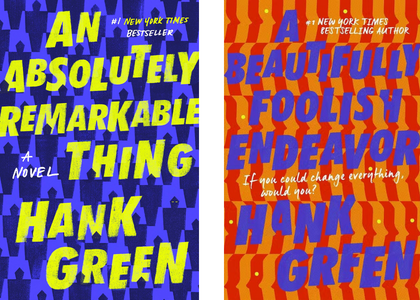Amazon Affiliate Link | Bookshop.org Affiliate Link In this retelling of The Great Gatsby, Jordan Baker narrates the story from the perspective of a queer, Asian woman adopted by a white couple. Although she runs in elite circles with Daisy and Tom, she is treated as an exotic pet, left on the outside even whenRead More
Meagan Kimberly reviews Make You Mine This Christmas by Lizzie Huxley-Jones
Christopher and Haf meet at a university Christmas party one night and after drunkenly kissing under the mistletoe, they’re mistaken for a couple. Rather than own up to the truth that they were simply strangers making out at a party, they go along with the idea. Haf agrees to fake date Christopher during the breakRead More
Susannah reviews Mistakes Were Made by Meryl Wilsner
Amazon Affiliate Link | Bookshop.org Affiliate Link Mistakes Were Made, Meryl Wilsner’s second f/f romance following 2020’s acclaimed Something to Talk About, is billed as “a sexy rom-com about a college senior who accidentally hooks up with her best friend’s mom.” While I anxiously awaited this book as much as the next reader of queerRead More
Nat reviews Something’s Different by Quinn Ivins
Amazon Affiliate Link | Bookshop.org Affiliate Link Of all the tropes in the world, the twin swap was not one that I would have thought myself a fan of, and yet… I might be now, after reading Something’s Different. Caitlin Taylor is an unemployed PhD grad who hasn’t been able to find a job inRead More
Nat reviews Errant (Volumes 1-3) by L.K Fleet
Amazon Affiliate Link I’m always impressed by books that are co-written, but a book with three writers?! A menage-an-author? The Errant series is written by L.K. Fleet, the pen name for a trio of writers: Felicia Davin, K.R. Collins, and Valentine Wheeler. For those of you who are very online and have perhaps pined forRead More
Kelleen reviews Mooncakes by Wendy Xu and Suzanne Walker
Amazon Affiliate Link | Bookshop.org Affiliate Link At the risk of being profoundly cliche (and profoundly redundant as I reviewed a graphic novel last month), I’ve decided to review Mooncakes. I am not a spooky season gal. I’m a curl up with a cozy blanket and a hot cup of tea, watching Gilmore Girls byRead More
Larkie reviews Nothing But Blackened Teeth by Cassandra Khaw
Amazon Affiliate Link | Bookshop.org Affiliate Link Trigger warning for suicidal ideation A compact novella with a haunted house story, strained friendships, and a hungry ghost, I had high expectations for Nothing But Blackened Teeth. Were they met? Kind of, but overall the book fell a little flat for me. First off, there are fiveRead More
Meagan Kimberly reviews A Lot Like Adiós by Alexis Daria
Amazon Affiliate Link | Bookshop.org Affiliate Link Gabe and Michelle had been best friends since childhood. As they grew into teenagers, their feelings took a turn toward romantic, but before they did anything about it, Gabe left. Over 10 years later, Michelle works as a freelance marketing specialist in the Bronx and Gabe owns aRead More
Kelleen reviews An Absolutely Remarkable Thing and A Beautifully Foolish Endeavor by Hank Green
Amazon Affiliate Link | Bookshop.org Affiliate Link I am in the middle of THE most epic reading slump this summer. I haven’t been reading a tenth of what I usually do, and the genres and storylines that usually capture my attention just aren’t doing it for me right now. But I’ve read these books 3.5Read More
Larkie reviews The Girls are Never Gone by Sarah Glenn Marsh
Amazon Affiliate Link | Bookshop.org Affiliate Link I love a good horror movie, and can never resist a classic haunted house, so when I heard that The Girls are Never Gone is about a podcast host investigating a 30 year old murder and possible haunting of a dilapidated old mansion, and it’s sapphic, I jumped on it.Read More
- « Previous Page
- 1
- …
- 7
- 8
- 9
- 10
- 11
- …
- 14
- Next Page »


